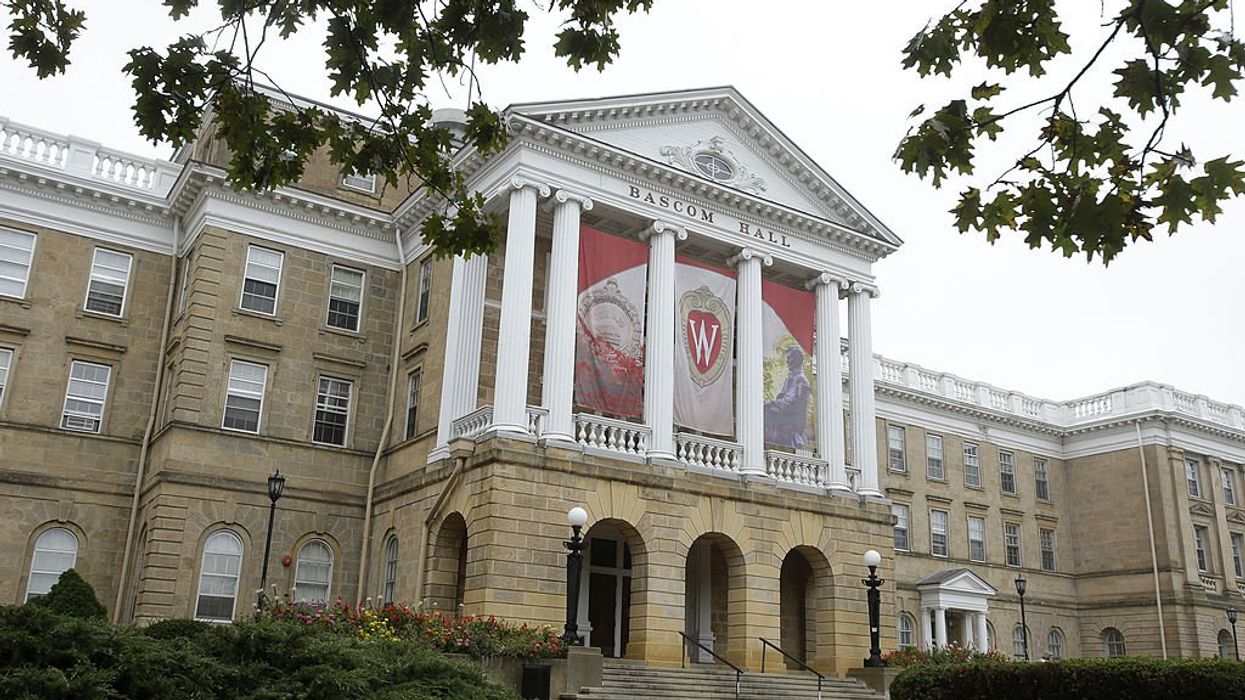
Photo by Mike McGinnis/Getty Images

First-year law students at the University of Wisconsin were reportedly forced to take a mandatory seminar that told them there are "no exceptional white people" and that "whites collude" to commit "genocidal attacks."
The students were lectured in the seminar by Joey Oteng, who is officially the Dean's Fellow of Inclusive Excellence at the Ohio State University Moritz College of Law. Oteng also refers to himself as a "social justice educator/PhD student, lawyer, blogger" and "Educational Consultant" on his Instagram.
Students were given literature to prepare them for the lecture, which included the document "28 Common Racist Attitudes and Behaviors."
Each type of racist attitude listed was followed by a "reality check" and an alleged consequence of that attitude. For example, being "color-blind," according to the material, actually means a person is "afraid to discuss racism."
"'Color-blindness' negates the cultural values, norms, expectations, and life experiences of people of color. Even if an individual white person could ignore a person’s color, society does not," the document read. "By saying we are not different, that you don’t see the color, you are also saying you don’t see your whiteness. This denies the people of colors’ [sic] experience of racism and your experience of privilege."
The literature even considered white people who consider other whites to be racist as a form of racist "denial," leaving no possibility that a white person cannot be benefitting from racism in some form.
"There are no 'exceptional white people.' You may have attended many anti-racism workshops; you may not be shouting racist epithets or actively discriminating against people of color, but you still experience privilege based on your white skin color. You benefit from this system of oppression and advantage no matter what your intentions are."
According to the Federalist, a source who attended the session said parts felt like a confessional rather than a seminar. The unnamed attendee said that students were asked to provide possible slurs for different racial groups, but "when it got to white people and the derogatory terms used for white people, [Oteng] was implying that it was OK to laugh at white slurs because white people don’t have any problems."
While the law school did not reply to a request for comment, a University of Wisconsin-Madison spokesman said that the session was "held in partial fulfillment of ABA (American Bar Association) Standard 303’s requirement that law schools provide education to their students on 'bias, cross-cultural competency, and racism.'"
According to the National Association for Law Placement, the education is required to address "values and responsibilities of the legal profession" which includes "cross-cultural competence" and the "obligation" of lawyers to promote a justice system that "provides equal access and eliminates bias."
In addition to other examples of racism that included asking to be told if something is racist, or when a person tries "not to notice" another's race, even attempting to understand the point of view of native Americans is considered racist in the literature.
The document warned of the use of native culture to "service white people searching for life’s meaning."
"Rather than escape one’s white racism by finding a spiritual path, whites instead collude in one more way with the genocidal attacks on native cultures," the anti-racism initiative claimed.
Like Blaze News? Bypass the censors, sign up for our newsletters, and get stories like this direct to your inbox. Sign up here!
Andrew Chapados